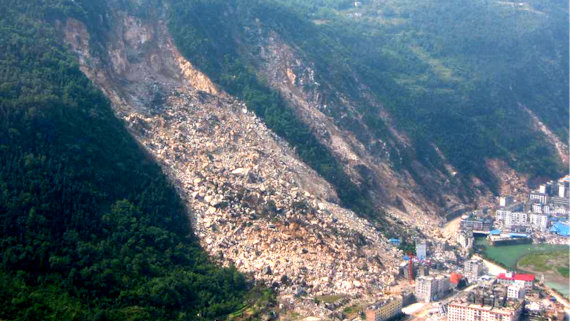Post-earthquake disaster resilience, China
We are developing new understanding about the physical and social controls and processes that affect the recovery from large earthquakes and promote resilience.
The 2008 Wenchuan Earthquake was an extremely large seismic shock, with around 80,000 fatalities. A large number of landslide and floods were triggered in response to the earthquake, which continue to affect the area. We are interested in understanding how communities "bounce back" from major disasters such as this, and how this recovery process can alleviate poverty, reduce inequality and support economic development.
Our work has shown a variable response to post-earthquake recovery driven by both physical and socio-economic factors. We continue to work with communities and governmental organisations to develop better models for recovery in this and other high mountain regions.
This work has developed from a NSFC, Newton Fund, NERC and ESRC-funded collaboration between the Sustainable Places Research Institute and the Chengdu University of Technology State Key Laboratory of Geohazard Prevention and Geoenvironment Protection called REACH. The REACH project was an interdisciplinary collaboration between social scientists, human geographers, geologists and engineers seeking to understand the resilience and recovery of communities that are exposed to persistent landslide hazard caused by large earthquakes.
Project Team
Find out more about our work on resilience to earthquake-induced landslide risk in China.




